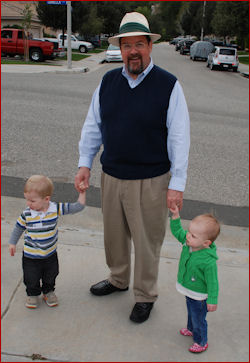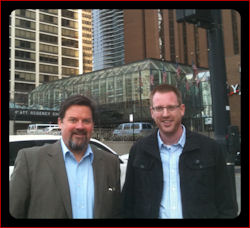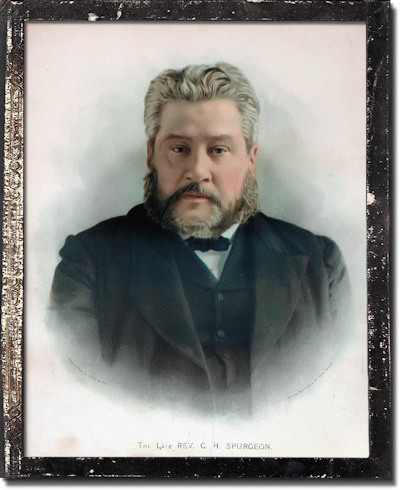As you may recall, in May of 2010 we helped reader Mike Dickey (vcdechagn) work with his dying mother to compose a gravestone as a lasting testimony to Christ. Mike much appreciated your help. His mother was not expected to live much more than a month. In fact, she went to be with the Lord less than a week after that post.
Mike has given me permission to show you the gravestone the family ended up composing.
Mike's mother was very concerned to be a testimony to Christ. Mike showed me a letter his mother wrote an unbelieving friend. I am sure it's now a dear memento to Mike: the letter is earnest, passionate, loving, and Christ-centered. For instance, check this out, unedited:
Here is the problem as I see it, and I don’t mean to be unloving. As I read through your list I can’t help but be struck by the fact that you are setting yourself up as judge. Now, if your morals are perfect and you are the one who judges the entire world that might work. But if each person is the final judge of what is good and what is evil we are going to end up with chaos…which is exactly what we have.Then she quotes Calvin, as well as the Word! This, from a lady who knew she was dying of cancer (though she does not mention it in the letter). The sister could have been a guest-poster at Pyro.
Since God is holy then every act that He performs is holy and righteous. While I know this doesn’t satisfy your questions I think you are seeking a God that you approve of. Instead, what we need to seek is the truth. It is not about a feeling. My feelings are often wrong. It’s about what the truth is. I can identify with a lot of what you’re saying because I used to find so many things in this world that went against my understanding of what God “should be like.”
In my upcoming book of studies in Proverbs (scheduled for September, last I heard), I have an extended section on the legacy parents can and should leave their children. Financial and property inheritance are great things, but they are nothing compared to a clear and unambiguous legacy of godliness, of a professed and practiced living faith in Christ. In fact, to quote, er, well... me, from what will be page 301:
I have seen far too many parents who see to their children’s every material need, but who leave this one crucial, indispensable, all-important necessity neglected. A great many verses in Proverbs point to the blessedness of the children of righteous, God-fearing parents. “In the fear of Yahweh is strong confidence, And his sons will have a refuge” (Prov. 14:26 DJP). See also: Proverbs 3:33; 11:21; 12:3, 7, 12; 13:22; 14:1, 11, 26; 15:6, 25; 17:6; 19:14; 20:7; 24:3. Each of these verses is worth serious meditation by parents who would please God.So if you're a parent, this is your best and dearest legacy.
But before I leave this, let me add: children are similarly obliged to their parents. God obliges children to give joy to their parents (Prov. 23:25). (I have another section on that in the Proverbs book, as well.) Many parents are forced by their feckless offspring to live in a state of anxiety, since the children either profess no faith at all, or give lip-service to a faith to which they give the lie by their lawless, Christ-shaming lives.
Such sad parents are robbed of the assurance they should have from children who have honored God by honoring them (Exod. 20:12; Mark 7:10; Rom. 13:1ff.; Eph 6:2) in the most meaningful way: by hearing, believing, receiving, and practicing the Word of God which they were taught from infancy on (cf. 2 Tim. 1:5; 3:15-17).
Have you given that most precious gift to your children? Your parents?
Do.












 ast week on
ast week on  The debate Rob Bell has provoked is not a game or a merely academic discussion. No whistle has blown; the down is not over. Bell has not retracted or recanted so much as a single sentence. His book is still selling briskly. If there ever is a time when "piling on" is appropriate, it's when Christ's teaching is being attacked so wolfishly. The suggestion that it's unsportsmanlike for too many people to comment is like saying David "displayed his unlovely side" when he whacked Goliath's head off. After all, he had already rendered Goliath unconscious! Was it "fair play" to go for the jugular (literally) while the giant was thus incapacitated?
The debate Rob Bell has provoked is not a game or a merely academic discussion. No whistle has blown; the down is not over. Bell has not retracted or recanted so much as a single sentence. His book is still selling briskly. If there ever is a time when "piling on" is appropriate, it's when Christ's teaching is being attacked so wolfishly. The suggestion that it's unsportsmanlike for too many people to comment is like saying David "displayed his unlovely side" when he whacked Goliath's head off. After all, he had already rendered Goliath unconscious! Was it "fair play" to go for the jugular (literally) while the giant was thus incapacitated?  In short, the suggestion that the Reformed blogosphere's response to Bell's awful screed was an "overreaction" is the wrong message to be sending evangelicals, who already have an unhealthy obsession with what the secular world thinks of them, an exaggerated estimate of the importance of academic respectability, a postmodernized concept of "cordiality," an irrational fear of speaking the truth plainly, and an unholy timidity when it comes to taking unpopular stands against politically correct but erroneous beliefs.
In short, the suggestion that the Reformed blogosphere's response to Bell's awful screed was an "overreaction" is the wrong message to be sending evangelicals, who already have an unhealthy obsession with what the secular world thinks of them, an exaggerated estimate of the importance of academic respectability, a postmodernized concept of "cordiality," an irrational fear of speaking the truth plainly, and an unholy timidity when it comes to taking unpopular stands against politically correct but erroneous beliefs.

 h my brothers and sisters in Christ, if sinners will be damned, at least let them leap to hell over our bodies. And if they will perish, let them perish with our arms about their knees, imploring them to stay, and not madly to destroy themselves. If hell must be filled, at least let it be filled in the teeth of our exertions, and let not one go there unwarned and unprayed for.
h my brothers and sisters in Christ, if sinners will be damned, at least let them leap to hell over our bodies. And if they will perish, let them perish with our arms about their knees, imploring them to stay, and not madly to destroy themselves. If hell must be filled, at least let it be filled in the teeth of our exertions, and let not one go there unwarned and unprayed for.

 he following interview was conducted by
he following interview was conducted by  But from the first page, I began to sense the Holy Spirit's conviction. "It is written, I will destroy the wisdom of the wise, and will bring to nothing the understanding of the prudent. Where is the wise? where is the scribe? where is the disputer of this world? hath not God made foolish the wisdom of this world?" (1:19-20). First Corinthians 3:18-19 especially gave me a jolt: "Let no man deceive himself. If any man among you seemeth to be wise in this world, let him become a fool, that he may be wise. For the wisdom of this world is foolishness with God." By the time I reached chapter 4, I knew I was lost.
But from the first page, I began to sense the Holy Spirit's conviction. "It is written, I will destroy the wisdom of the wise, and will bring to nothing the understanding of the prudent. Where is the wise? where is the scribe? where is the disputer of this world? hath not God made foolish the wisdom of this world?" (1:19-20). First Corinthians 3:18-19 especially gave me a jolt: "Let no man deceive himself. If any man among you seemeth to be wise in this world, let him become a fool, that he may be wise. For the wisdom of this world is foolishness with God." By the time I reached chapter 4, I knew I was lost. I had participated in several e-mail forums and even a couple of Usenet newsgroups over the years, and I knew that Internet forums can sometimes be hives of cruelty and small-mindedness. (I hadn't even been much of a blog-reader for that very reason.) Still, blogging seemed a more fruitful way than e-mail forums to express and defend one's opinion. I was editing a book at the time and needed to meet a deadline, so I registered a blog address at Google's Blogger but left the blog blank except for an announcement that I would begin blogging there in a month. When I finally began posting at the blog I was shocked at how many readers and how many comments I got just within the first half hour.
I had participated in several e-mail forums and even a couple of Usenet newsgroups over the years, and I knew that Internet forums can sometimes be hives of cruelty and small-mindedness. (I hadn't even been much of a blog-reader for that very reason.) Still, blogging seemed a more fruitful way than e-mail forums to express and defend one's opinion. I was editing a book at the time and needed to meet a deadline, so I registered a blog address at Google's Blogger but left the blog blank except for an announcement that I would begin blogging there in a month. When I finally began posting at the blog I was shocked at how many readers and how many comments I got just within the first half hour.
 I hate that I have to leave out all of Mahler's Symphonies, Mendelssohn's Elijah, Morton Lauridsen's Lux Eterna, and Bach's "St. Matthew's Passion"—not to mention Perez Prado, Ernesto Lecuona, A. R. Rahman, Joaquín Rodrigo, and a lot more. I currently have 42,783 tracks in my iTunes collection, so you see the size of the problem.
I hate that I have to leave out all of Mahler's Symphonies, Mendelssohn's Elijah, Morton Lauridsen's Lux Eterna, and Bach's "St. Matthew's Passion"—not to mention Perez Prado, Ernesto Lecuona, A. R. Rahman, Joaquín Rodrigo, and a lot more. I currently have 42,783 tracks in my iTunes collection, so you see the size of the problem.





 he sin of unbelief will appear to be extremely heinous when we remember that it is the parent of every other iniquity. There is no crime which unbelief will not beget.
he sin of unbelief will appear to be extremely heinous when we remember that it is the parent of every other iniquity. There is no crime which unbelief will not beget.











